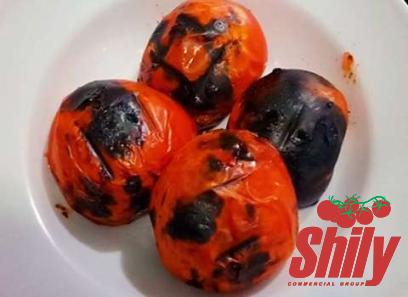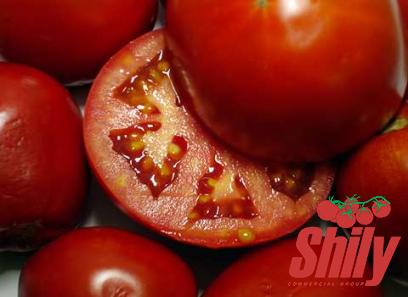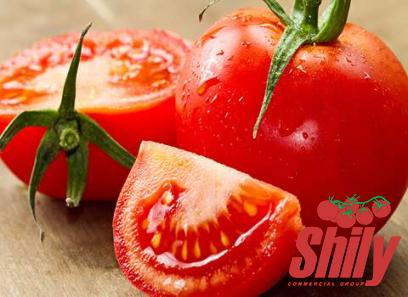Exploring the Wide Array of Sauces for Chicken
Introduction:
Sauce plays a vital role in enhancing the flavor and juiciness of chicken dishes. It adds a burst of unique and complementary flavors, transforming an ordinary chicken into a culinary masterpiece. Whether you’re grilling, roasting, frying, or cooking chicken in any other way, the choice of sauce can elevate the taste to greater heights. In this article, we will explore various types of sauces for chicken that cater to different palates, highlighting their distinct flavors, origins, and usage.
1. Classic Barbecue Sauce:
Barbecue sauce is a staple for chicken lovers around the world. Originating in the United States, barbecue sauce varies in flavors depending on the region. While some are tangy and vinegar-based, others lean towards sweeter and spicier flavors. This versatile sauce can be used as a marinade, glaze, or dipping sauce, creating a smoky and caramelized layer on the chicken that adds depth and complexity to the taste.
2. Teriyaki Sauce:
Originating from Japan, teriyaki sauce is a popular choice for chicken dishes. Combining soy sauce, mirin, sugar, and other ingredients, teriyaki sauce offers a perfect balance between savory and sweet flavors. When used as a marinade or glaze, teriyaki sauce imparts a glossy finish to the chicken, caramelizing beautifully during cooking, and leaving a luscious taste on the palate.
3. Buffalo Wing Sauce:
Buffalo wing sauce gained immense popularity in the city of Buffalo, New York. It is a tangy, spicy, and buttery sauce, traditionally used to coat chicken wings. Made with hot sauce, vinegar, butter, and spices, Buffalo wing sauce provides a fiery kick that pairs exceptionally well with grilled or fried chicken. The sauce can be served on the side for dipping or brushed directly onto the chicken for a more intense flavor.
4. Pesto Sauce:

Pesto sauce is a classic Italian sauce made from fresh basil leaves, garlic, pine nuts, Parmesan cheese, and olive oil. Typically used as a pasta sauce, it also works wonders when used with chicken. Pesto sauce adds a vibrant and herbaceous flavor to chicken, creating a delightful combination that is both light and refreshing. Roasting or grilling the chicken with a layer of pesto sauce locks in moisture and infuses the dish with an aromatic appeal.
5. Lemon Butter Sauce:
Simplicity at its best, lemon butter sauce is a versatile option that adds a refreshing tang to chicken. Made by combining fresh lemon juice, butter, garlic, and sometimes white wine, this sauce can be used as a marinade, finishing sauce, or drizzled over grilled or sautéed chicken. Lemon butter sauce provides a clean and bright flavor profile that pairs well with various herbs and spices.
6. Sweet and Sour Sauce:
Originating in Chinese cuisine, sweet and sour sauce is a zesty and tangy option that can add a delightful twist to your chicken dish. Typically comprising sugar, vinegar, soy sauce, and diced vegetables, this sauce balances both sweet and sour flavors. It creates a sticky glaze when used to coat chicken, adding a burst of vibrant flavors that are pleasing to the taste buds.
7. Chimichurri Sauce:
Hailing from Argentina, chimichurri sauce is a fresh and zesty sauce made from parsley, garlic, olive oil, vinegar, and spices. Although commonly used as a dipping sauce or marinade for grilled meats, it pairs exceptionally well with chicken. Chimichurri sauce adds a vibrant and herb-infused taste to the chicken, making it ideal for barbecues or as a finishing touch.
8. Honey Mustard Sauce:
Combining the sweetness of honey and the tanginess of mustard, honey mustard sauce is a popular choice for chicken lovers. With a creamy and smooth texture, this sauce can be used as a marinade, condiment, or glaze. The flavors meld together beautifully, complementing both grilled and fried chicken dishes.
9. Tandoori Sauce:
Originating from the Indian subcontinent, tandoori sauce is a vibrant and flavorful choice for chicken. Made with a blend of yogurt, ground spices, garlic, ginger, and lemon juice, this sauce yields a vibrant red-orange color and imparts a unique smoky flavor to the chicken. Ideal for marinating chicken before grilling or baking, tandoori sauce elevates the dish to new heights with its distinctive Indian flavors.

Conclusion:
The choice of sauce is a key factor in elevating the flavor profile of chicken dishes. Each type of sauce mentioned in this article offers a unique taste profile and origin, ensuring a diverse range of flavors to suit individual preferences. From tangy and spicy buffalo wing sauce to herbaceous and fresh pesto sauce, there is a sauce for every chicken dish imaginable. So, go ahead and explore the wide array of sauces for chicken, and let your taste buds embark on a flavorful journey.Differentiating Your Business with Unique Sauce Offerings:
1. Understanding Consumer Demands:
In the ever-evolving restaurant industry, understanding consumer demands is crucial for staying ahead of the competition. One way to stand out is to offer a variety of chicken sauces that cater to different taste preferences. By conducting market research and analyzing customer feedback, businesses can identify the most popular types of sauces and incorporate them into their menu offerings. This not only attracts a wider range of customers but also ensures that you are providing a diverse and satisfying culinary experience.
2. Creating Signature Sauces:
To set your business apart from competitors, consider creating your own signature sauces for chicken dishes. These unique offerings can become a distinguishing feature of your brand and generate a loyal customer base. Experimenting with flavor combinations, using locally sourced ingredients, or incorporating cultural influences can help create sauces that are both memorable and exclusive to your establishment. Develop a range of signature sauces that appeal to different tastes, such as spicy, tangy, or sweet, to cater to a wider customer base.
3. Partnering with Local Suppliers:
Incorporating locally sourced ingredients into your sauce recipes not only supports local farmers and businesses but also adds an additional selling point to promote your brand. Highlighting the fact that your business uses fresh and locally produced ingredients can enhance the appeal of your sauces and attract patrons who value sustainability and regional flavors. Developing partnerships with local suppliers can also provide opportunities for cross-promotion and collaborative marketing efforts.
4. Offering Customization Options:
Providing customers with the opportunity to customize their chicken dish with a variety of sauces can greatly enhance their dining experience. By offering options like a sauce tasting flight or a sauce bar, you allow patrons to select their preferred flavors and experiment with various combinations. This flexibility not only appeals to individuals with specific dietary needs or preferences but also encourages repeat visits as customers have the chance to explore different flavor profiles.
5. Incorporating Global Influences:

In today’s multicultural society, showcasing global flavors can make a significant impact on the success of your business. Introduce chicken sauces that incorporate flavors from different cuisines, such as Korean spicy gochujang, Mexican mole, or Thai peanut sauce. By offering a diverse range of international sauces, you can attract a broader customer base and showcase your culinary expertise in creating authentic and delicious dishes. This also provides an opportunity to educate customers about the cultural origins of these sauces, further enhancing their dining experience.
6. Promoting Healthier Options:
With an increasing focus on health-conscious eating, it is essential to offer chicken sauce options that cater to dietary preferences and restrictions. Consider developing sauces with low-sodium or reduced-sugar content to accommodate customers who are watching their intake of these ingredients. Additionally, offering plant-based or vegan chicken sauce alternatives can attract a growing market of individuals following a plant-focused lifestyle. Promote these healthier options on your menu and highlight their nutritional benefits to appeal to health-conscious customers.
7. Marketing and Promotion:
To effectively showcase your array of chicken sauces, develop a comprehensive marketing and promotion strategy. Utilize both traditional and digital marketing channels to create awareness and entice customers to try your offerings. Consider hosting themed events, such as chicken sauce tasting nights, where customers can sample and provide feedback on your different sauces. Social media campaigns, email marketing, and collaborations with food influencers can also generate buzz and attract new customers.
8. Partnering with Local Food Trucks and Catering Services:
Collaborating with local food trucks or catering services can expand the reach of your chicken sauces beyond your brick-and-mortar location. By partnering with these mobile food providers, you can introduce your sauces to new demographics and locations, creating opportunities for increased exposure and revenue. Ensure that your brand identity and message is consistent across all sales channels, including food trucks and catered events, to maintain brand integrity.
9. Incorporating Sauce Sampling:
One effective method to introduce your array of chicken sauces to customers is by offering sauce sampling. By providing small portions of various sauces, customers can get a taste of their options before committing to a specific dish. This not only encourages customer engagement and interaction but also creates a memorable experience that can lead to further exploration of your menu offerings. Make sure to train your staff in providing guidance and recommendations based on the different flavors and customer preferences.
10. Collaboration with Other Businesses:
Consider collaborating with other local businesses, such as craft breweries or wineries, to create mutually beneficial opportunities for cross-promotion. By suggesting beer or wine pairings with your chicken dish and matching sauces, you can create a unique dining experience that appeals to a wide range of tastes. This collaboration can also provide opportunities for joint events, such as beer and chicken sauce pairing nights, where customers can explore the synergies between your offerings.

Conclusion:
With the diverse range of sauces available for chicken dishes, businesses have an opportunity to differentiate themselves and captivate customers with unique flavors. Understanding consumer demands, creating signature sauces, incorporating local ingredients, offering customization options, and exploring global influences are just a few strategies that businesses can employ to stand out from the competition. By implementing these approaches and leveraging effective marketing and promotion techniques, businesses can attract a wider customer base and establish themselves as leaders in the industry. By constantly innovating and delivering exceptional flavors, your business can thrive and generate consistent success.









